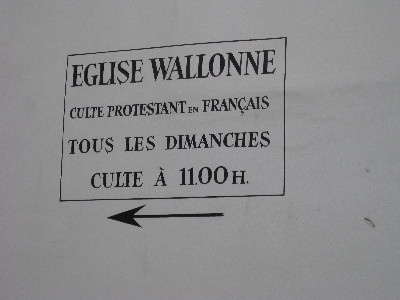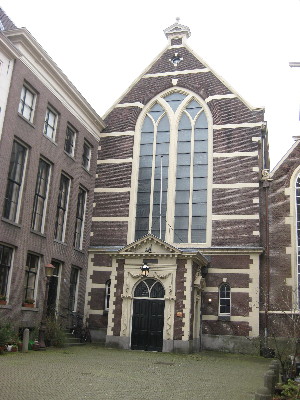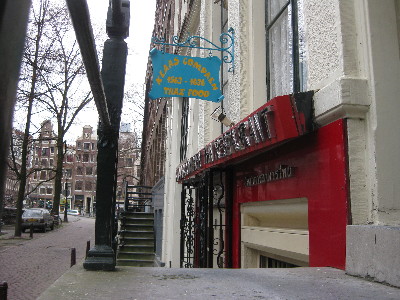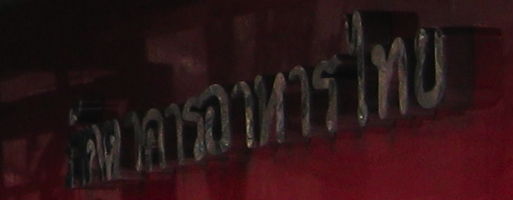Amsterdam Miscellanea
I wrap up my reports from the Netherlands with some miscellanea.
The Netherlands was not tolerant of Catholicism; that's why they split from what became the Spanish Netherlands, which is now Belgium. That's why so many former clandestine Catholic churches in Amsterdam (Our Lord in the Attic, Moses and Aaron, Begijnhof Chapel) are now tourist attractions.
A couple more echoes of that came up in the web searches supporting my blog posts on the trip. Like, William the Silent (the subject of the Dutch national anthem) had been both a Catholic and a Calvinist; the rebellion he supported gave birth to the Netherlands, but he was pained at the split of the Low Countries. Or, the geopolitical mess that is Baarle functioned as well as it did because both Dutch Baarle (Baarle-Nassau) and Belgian Baarle (Baarle-Hertog) are Catholic—and were the selfsame parish until 1860.
The Dutch were not tolerant of Catholics, but they were plenty accepting of Walloons. Provided they were Protestant, of course:

Given the rift between Dutch-speakers and French-speakers in Belgium (which the Walloons had plenty of blame for), I found this poignant.
❦❦❦
A couple of street signs in Amsterdam had automatic apostrophe syndrome: the initial apostrophe of 't < het "the" was pointing the wrong way: ‘t instead of ’t. Which is what happens when you use smart quotes in Word, and don't know about manually fixing the apostrophe direction. The same happens with ‘n’ in English for "and", instead of ’n’.
Once I saw it, I was determined to photograph the evidence the next time I saw it. I immortalised an apostrophe pointing the right way, as a baseline against which to castigate Dutch signwriters:
Unfortunately, I never did see another example of the wrong apostrophe. I'll link in comments if one turns up online.
❦❦❦
Who was Klaas Compaen, 1563–1636? Apparently, a Dutch pirate who spent time in Thailand. Fittingly his name, complete with dates of birth and death, figures above a Thai restaurant.
I have no idea what the Thai bit is saying:
I suspect it's not "Klaas Compaen, 1563–1636".
Confusion about the chap: Wikipedia (Dutch, and English building on the Dutch) dates Claes Compaen as 1587-1660, and places him everywhere but Thailand: English Channel, Morocco, Sierra Leone, West Indies. The recent monograph on the chap (Snelders, Stephen. 2005. The Devil's Anarchy: The Sea Robberies of the Most Famous Pirate Claes G. Compaen, and The Very Remarkable Travels of Jan Erasmus Reyning, Buccaneer. Williamsburg (NY): Autonomedia) doesn't mention Thailand or Siam in the Google Book Search either. There surely can't have been two Compaen pirates, could there?
❦❦❦
The school of composers taking after Steve Reich and Philip Glass have become a cornerstone of contemporary classical music. Well, ante-contemporary, because most composers have already moved on from the more rigorous forms (including Glass—let alone John Adams). But this was the most important thing going between 1950 and 1980, and it is heartening to see the Amsterdammers recognising it in festival.

That's, uh, Minimalist music. Not minimal. There'll be plenty of music there, I trust; it'll just have a single chord progression.
❦❦❦
We noted earlier the distinction between the Netherlands and Holland. Holland may well have run the Netherlands; but Holland is not the Netherlands: there's Friesland (where they spoke Frisian, which is not Dutch), and the whole East of the country (where they spoke Low Saxon, which is not Dutch), and Maastricht (where they spoke Limburgish, which is not Dutch) and Flevoland (where they didn't speak Dutch, because a hundred years ago it was underwater).
I have been careful to maintain the distinction between Holland and the Netherlands. Most people, most of the time, in most languages, don't bother. It's Ολλανδία [olanðia] in Greek, for instance. Κάτω Χώρες turns up in schoolbooks as the literal rendering of the Netherlands; but noone uses it, and the Low Countries (þe neðere landen) also includes both the erstwhile Spanish Netherlands, now Belgium, and the strange case of Luxembourg. Same story in many a language: using the checklist of the Wikipedia list of articles on the country by language, you have
- Bulgarian Холандия [xolandija],
- Arabic هولندا [hulnda],
- Manx Yn Ollan,
- Hawai'ian Hōlani,
- Indonesian Belanda,
- Hebrew הולנד [hulnd],
- Japanese オランダ [oranda],
- Pontic Ολλανδία...
Didn't photo this, because by the time I was leaving Amsterdam I was over photography (doesn't take much); but at the airport, I noted that the English-language signs were unabashedly referring to Holland, not the Netherlands. This makes sense, and is the same story as Chinese speakers of English and "Peking".
Chinese people know full well that their capital city has been called Beijing since around 1600. But when the more Anglophile Chinese speak English, it's more important for them to prove that they know what English-speakers call Beijing—which is how the locals pronounced the city in 1550. So they make a point of using the English "Peking"—even as English speakers (following the lead of the Chinese government) make a point of using the current Chinese "Beijing".
Same with the signwriters at Schipol Airport, I surmise. They know Holland isn't the Netherlands. But to be as welcoming as possible to English-speakers, it's more important for them to acknowledge that English-speakers don't know Holland isn't the Netherlands. Ergo,
http://www.holland.com is the Netherlands Board of Tourism & Conventions; http://www.netherlands.com seems to be some cheap hosting shell surrogate.❦❦❦
That's that. I look forward to getting over my jetlag; amortising my sleep (two four-hour cycles) helped, but I currently find myself being a morning person.
Now to the challenge of maintaining this blog without being overseas...

 Loading...
Loading...




4 comments:
Minimalist music
Yeah, well, my friend Joe Zitt (yes, really, his grandfather was from Zhitomir, but he did tend to overdo things, like escaping from Russia to America by way of Vladivostok) once put on a Gigantic Electric Guitar Ensemble, with about 40 participants. I couldn't go, and sent my regrets on missing the gigantic electric guitars. And that was before I had even heard of pretty little girls' schools....
@John, I presume this is the forty-fold guitar chap? Forty guitars doesn't necessarily mean just one chord progression. Although it does mean that it'll sound so muddy, any more than one chord progression would be a mistake.
@Everyone Else: "pretty little girls schools" references John and my common past in Lojban: it was the canonical illustration in Lojban (and Loglan before it) of syntactic ambiguity in compound expressions. Is that a form of minimalism? I guess, in that it keeps recontextualising the same material...
I forward from my friend David, who (like entirely too many people) is reading and commenting on opɯdʒɯlɯklɑr via Facebook:
***
The English called the current Chinese capital "Peking" because they were following the Cantonese pronunciation, where Beijing sounds like Pek-king.
Back in the early 16th century when Beijing was not the Capital, it was called Beiping (北平) meaning North Peace.
When they moved the Capital from Nanjing to Beiping (after the Prince who was stationed in Beijing murdered pretty much all his brothers & uncles in Nanjing, and then became Emperor, and then moved the Capital to his powerbase in Beijing), they renamed the city Beijing (北京) meaning North Capital. Interestingly, they never rename Nanjing (南京) to Nanping.
When China became a Republic in 1912, the Capital was moved back to Nanjing, and Beijing was once again renamed Beiping.
When the Communists took over in 1949 and moved the Capital back to Beiping again, they renamed the city Beijing again. In some Taiwanese textbook, they still refer to the city as Beiping.
***
For my part, I've heard the phonetic change account several times, and Wikipedia cites a paper about it. Cantonese is known to be more archaic than Mandarin, which is consistent with Peking being a more archaic pronunciation (Wikipedia also raised the prospect of an alternate dialect origin). The Beiping vs. Beijing/Peking switch is a separate issue, of course.
Well, the guitar piece never happened. But yes, the idea was pretty close to a single progression. I was hoping to get as many guitarists, bassists, and drummers together in a (hopefully dry) field and have them play a blues in E at common tempo, with audients wandering among them. I had no sense of the logistics involved, so the idea stayed on the page. Working with vocalists has since proven to require far fewer power outlets.
Post a Comment